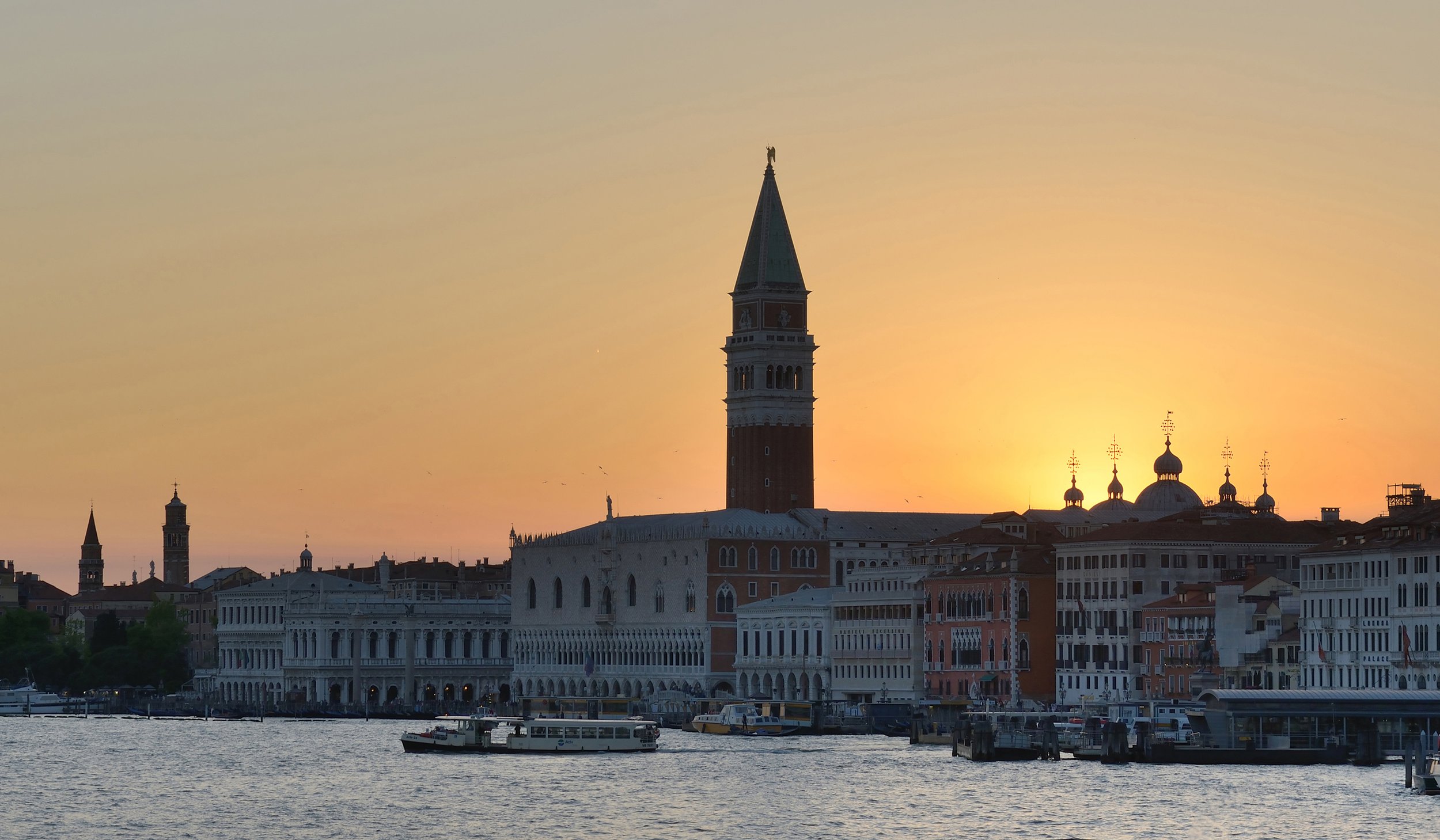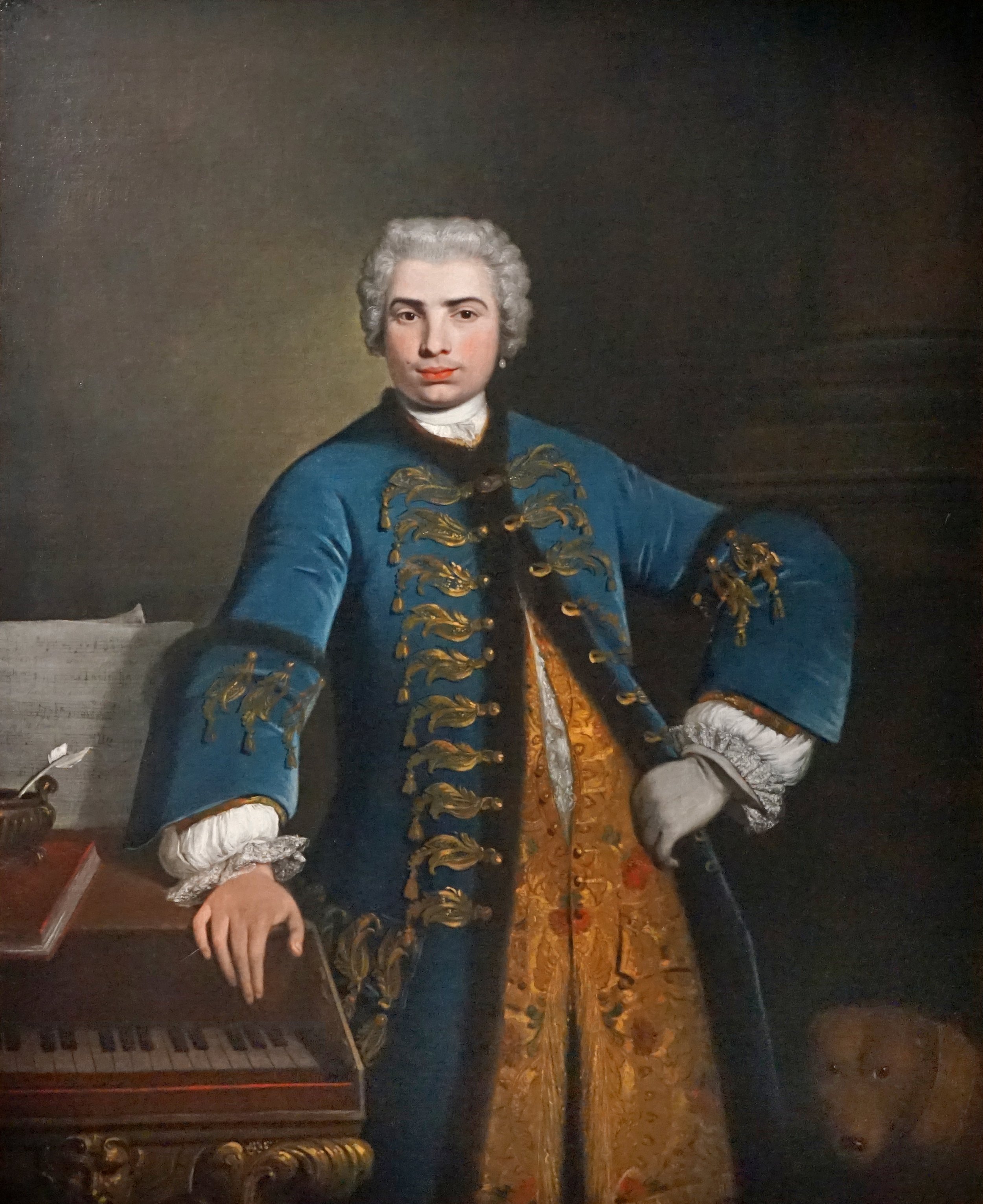Antonio Vivaldi: Il Prete Rosso ‘The Red Priest’
Venice is not just famous for its canals, architecture and artists. The floating city also played a crucial role in the development of classical music. It was once even called the “Republic of Music.” Its most famous composer was arguably Antonio Vivaldi (1678-1741). Vivaldi was born in Venice in 1678. His father was a violinist in the orchestra of San Marco Basilica. He taught his talented son the violin so well that Antonio grew into a proper violin virtuoso. But his parents didn’t want young Antonio to become a famous musician. Instead, they sent him away to study for the priesthood when he was fifteen. Ten years later, in 1703, Vivaldi became ordained as a priest. Because of his red hair – and maybe also because of his temperament – he was nicknamed il prete rosso, the red priest.
Sunset over the Basilica of San Marco in Venice (Wolfgang Moroder, Wikimedia Commons)
Contrary to his parents’ wishes, Antonio made his name as a composer, and not as a priest. In 1703, “the red priest” was appointed violin master of Venice’s Ospedale della Pietà, a home for abandoned and orphaned children. The Pietà’s female wards received musical training. Under Vivaldi, the Pietà’s orchestra became a sensation and the composer wrote some of his famous violin concertos for students of the Pietà.
Vivaldi also composed for the superstars of the Baroque: the castrati, male sopranos (highest vocal range) or contraltos (second highest range). Castrated (removal of testes) before puberty, the voice of a castrato would remain high like that of a choir boy. But because men usually have larger bodies and greater lung capacity than women, the voices of the grown-up castrati would combine extraordinary range and flexibility with great power. Why this inhumane practice? Because in the 16th century, women were banned from the stage: men had to perform the parts intended for women. The castrati were the superstars of 18th century opera. Most famous of all was the Italian Carlo Broschi, known as Farinelli (1705-1782).
Portrait of Farinelli by Bartolomeo Nazari, 1734. Royal College of Music Museum, London (Wikimedia Commons)
The voices of the castrati would move their audiences to tears and ecstatic applause. But few, if any, would think about the enormous price the castrati were paying for their supernatural voices. Thankfully, by the late 18th century, tastes began to change; the era of the castrati was slowly coming to an end. The cruel practice was made illegal across Italy by the 1860s.
Today, Vivaldi’s arias written for castrati are either performed by women, or by countertenors, men who have natural alto (high) voices. Check out this breath-taking performance of a Vivaldi cantata by the American countertenor John Holiday. In the cantata, a heartbroken shepherd mourns his lost love, the “ungrateful Dorilla.”

